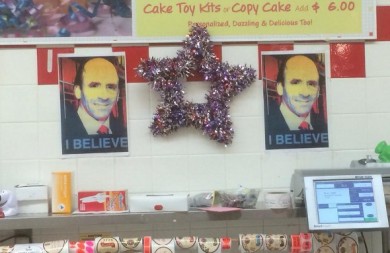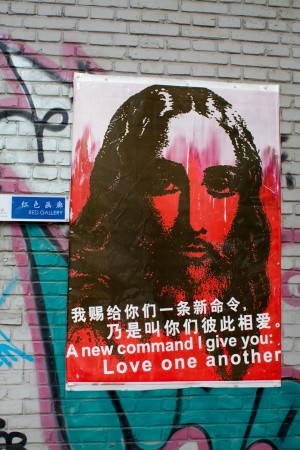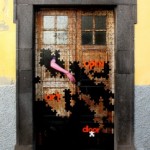 “Listen and understand: it is not what goes into the mouth that defiles a person, but it is what comes out of the mouth that defiles.” But Peter said to him, “Explain this to us.” Then he said, “Do you not see that whatever goes into the mouth enters the stomach, and goes out into the sewer? But what comes out of the mouth proceeds from the heart, and this is what defiles. For out of the heart come evil intentions, murder, adultery, fornication, theft, false witness, slander. These are what defile a person, but to eat with unwashed hands does not defile.”
“Listen and understand: it is not what goes into the mouth that defiles a person, but it is what comes out of the mouth that defiles.” But Peter said to him, “Explain this to us.” Then he said, “Do you not see that whatever goes into the mouth enters the stomach, and goes out into the sewer? But what comes out of the mouth proceeds from the heart, and this is what defiles. For out of the heart come evil intentions, murder, adultery, fornication, theft, false witness, slander. These are what defile a person, but to eat with unwashed hands does not defile.”
Go Jesus! There’s an easy Amen here, and a good chuckle when you read the food laws and preparation rules of Jesus’ time. Here in New England, it wouldn’t be summer without shellfish, shore dinners, clam bakes. But what about our own forbidden-food rules?
 Every table I know now accommodates vegetarians, vegans, gluten frees, raw foodies and lactose restrictors. Not to mention the concerns we all share for what the food we eat ate: whether animals ate antibiotic laced feed or too much corn, whether the soil in which grains grew was loaded with pesticides. And then there are the food additives: I peer at labels to be sure cereals are high fructose free, made with unbleached flour. We worry as much as Jesus’ generation did, and perhaps more, about what goes into our mouths, and how it may defile us.
Every table I know now accommodates vegetarians, vegans, gluten frees, raw foodies and lactose restrictors. Not to mention the concerns we all share for what the food we eat ate: whether animals ate antibiotic laced feed or too much corn, whether the soil in which grains grew was loaded with pesticides. And then there are the food additives: I peer at labels to be sure cereals are high fructose free, made with unbleached flour. We worry as much as Jesus’ generation did, and perhaps more, about what goes into our mouths, and how it may defile us.
About what comes out of our mouths, though, there is a lot less restraint. And about the condition of the heart behind the words, we make little or no mention. Our own anger we assume to be righteous. Anger aimed at us, though, proves unrighteousness, and becomes a justification for outrage.
 The Market Basket brouhaha is a case in point: this small chain of Massachusetts, New Hampshire and Rhode Island grocery stores has been riven by a blood feud between the family members who own it for two generations now, and for the past month that feud has spilled out of the boardrooms and into the public ears, as Market Basket employees have risen up with a united voice to protest the ouster of one cousin-owner by another, and to protest plans to sell the chain. The stalemate is now being addressed by the Governors of MA and NH, who are responding to the precarious employment situations of hundreds of workers, and the revenue losses which are in the tens of millions from a few weeks of customer boycotts. And the stalemate is about hate, about hearts so full of suspicion, hostility, and detestation that arriving at any detente, even to sell, has been impossible.
The Market Basket brouhaha is a case in point: this small chain of Massachusetts, New Hampshire and Rhode Island grocery stores has been riven by a blood feud between the family members who own it for two generations now, and for the past month that feud has spilled out of the boardrooms and into the public ears, as Market Basket employees have risen up with a united voice to protest the ouster of one cousin-owner by another, and to protest plans to sell the chain. The stalemate is now being addressed by the Governors of MA and NH, who are responding to the precarious employment situations of hundreds of workers, and the revenue losses which are in the tens of millions from a few weeks of customer boycotts. And the stalemate is about hate, about hearts so full of suspicion, hostility, and detestation that arriving at any detente, even to sell, has been impossible.
How good and pleasant it is when brothers dwell together in unity, says the Psalmist (133). The DeMoulas family hasn’t , not for decades now. And in this they are biblical, for the Bible is filled with stories of rancorous brothers, brothers who lie, cheat and steal from each other, brothers who are corrupt, brothers whose resentment runs to murder. Jesus talks about such brothers in the parable of the Prodigal Son, and in the parable of the Good Samaritan (the beaten man is unhelped by brother Jews, aided by a Samaritan who saw the brother in him) and in the story of Lazarus and Dives.
Fractious relations in the human family are bringing murder into the public sphere in Gaza, Iraq, Syria, Afghanistan, and so many other places, acts of aggression justified in the name of some righteousness, some purity of life, evils done in the name of fear of defilement.
Learning to stop hating seems an impossible task, a fool’s errand.
 Jesus, who has dismissed the offense that the pious have taken against him because of his challenges to the purity laws, then is approached by a Canaanite woman, who asks him for help for her daughter. Using the logic of his own accusers, he tests her and his own disciples. : you are not a Jew; you are not an Israeli; you are not one of us. You are an alien.
Jesus, who has dismissed the offense that the pious have taken against him because of his challenges to the purity laws, then is approached by a Canaanite woman, who asks him for help for her daughter. Using the logic of his own accusers, he tests her and his own disciples. : you are not a Jew; you are not an Israeli; you are not one of us. You are an alien.
She stands her ground, responding with belief in herself and her own humanity, though that has not been recognized by Jesus yet. He says what so many say, that charity begins at home, and is wasted on strangers. Thrown to the dogs, is the way Jesus puts it. She points out that even the dogs are treated with the kindness she is seeking. If she is a dog, then treat her well, she is saying. She is in this for her daughter. And he is her hope. It turns out, she is Jesus’ hope, too. He hallows her faithfulness, heals her child, holds her up for his disciples to remember, and for all of us to learn from in our own hearts’ language.
Signs of hope are here, in the midst of our worst acts of smugness, our refusals of mercy and our inhumanity towards others. Small lights, shining brightly against the darkness in us, offer us hope, as she did Jesus:
Kids4Peace, a camping program that brings Jewish, Christian and Moslem youth from Palestine and Israel and New Hampshire, together for three weeks in New Hampshire, is sponsored by the Anglican Diocese of Jerusalem and the Episcopal Diocese of NH. In these few weeks youth who have been taught to hate and been vilified work at learning to see each other anew and to envision the future together.
 An Israeli photographer, Abraham Rotman, on a Twitter site, #JewsandMuslemsRefusetobeEnemies, posts amazing photos of people publicly practicing the brotherhood of the open hearted. According to the news, they are a tiny percentage of their populations. Yet they are a seed, a possibility of new life, hope growing green among the fires of hate.
An Israeli photographer, Abraham Rotman, on a Twitter site, #JewsandMuslemsRefusetobeEnemies, posts amazing photos of people publicly practicing the brotherhood of the open hearted. According to the news, they are a tiny percentage of their populations. Yet they are a seed, a possibility of new life, hope growing green among the fires of hate.
After all, love is not about our goodness and someone else’s matching righteousness. Love is not about the position in which we pray or our knowledge of ritual prayers, said Jesus, but the state of our hearts when we are praying. And Paul, in the passage from Romans assigned to this week, reminds us that God practices mercy towards all of us, for none of us really gets what righteousness really is, or the practice of hospitality to strangers, or the true meaning of family.
_______________________________________________________
Illustrations:
1. Moslem and Jewish toddlers join their parents at march against hate in Israel. A. Rotman photo, from the Jews and Arabs Refuse to Be Enemies media campaign.
2. Moslem woman and Jewish man kissing over the wall of separation. a Rotman photo, from the Jews and Arabs Refuse to be Enemies Campaign.
3. Market Basket Signs, from universalhub.com blog. This attribution is printed there: Dan OBrien photographed the Arthur T. posters in the bakery at the Ashland Market Basket. .
4. Poster from Beijing, China. Vanderbilt Divinity School Library, Art in the Christian Tradition.
5. Photos from Kids4Peace website.
6. Jews and Moslems March Against Killing in Gaza, photographer: Bharat Choudhary/on the Alexia Foundation website, Photography That Drives Social Change.












